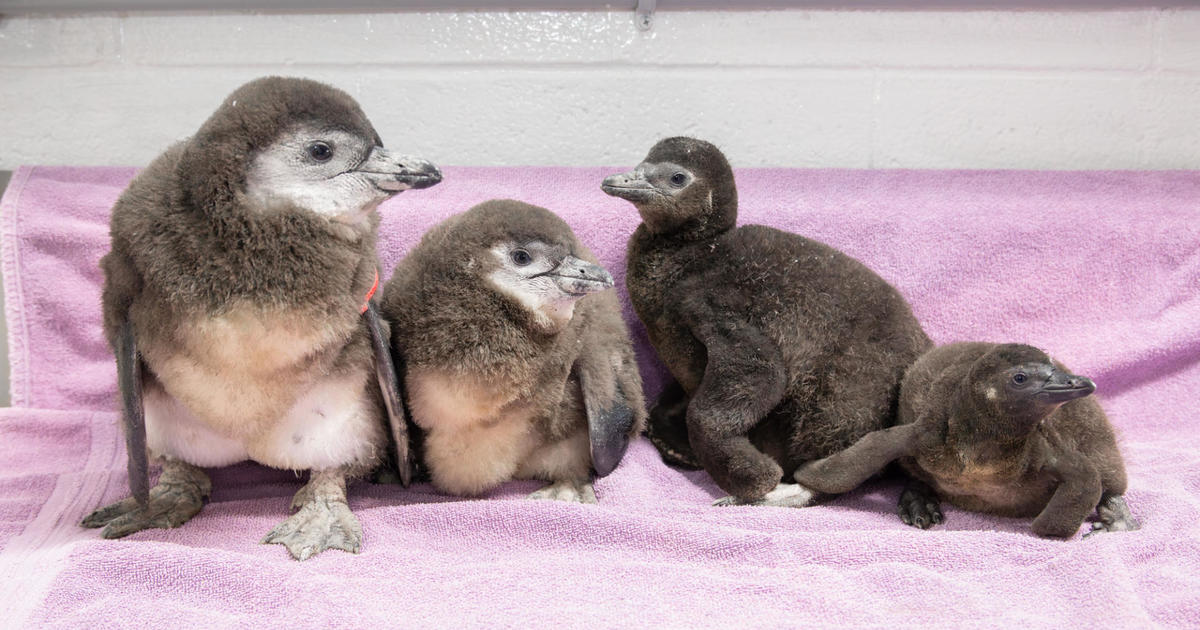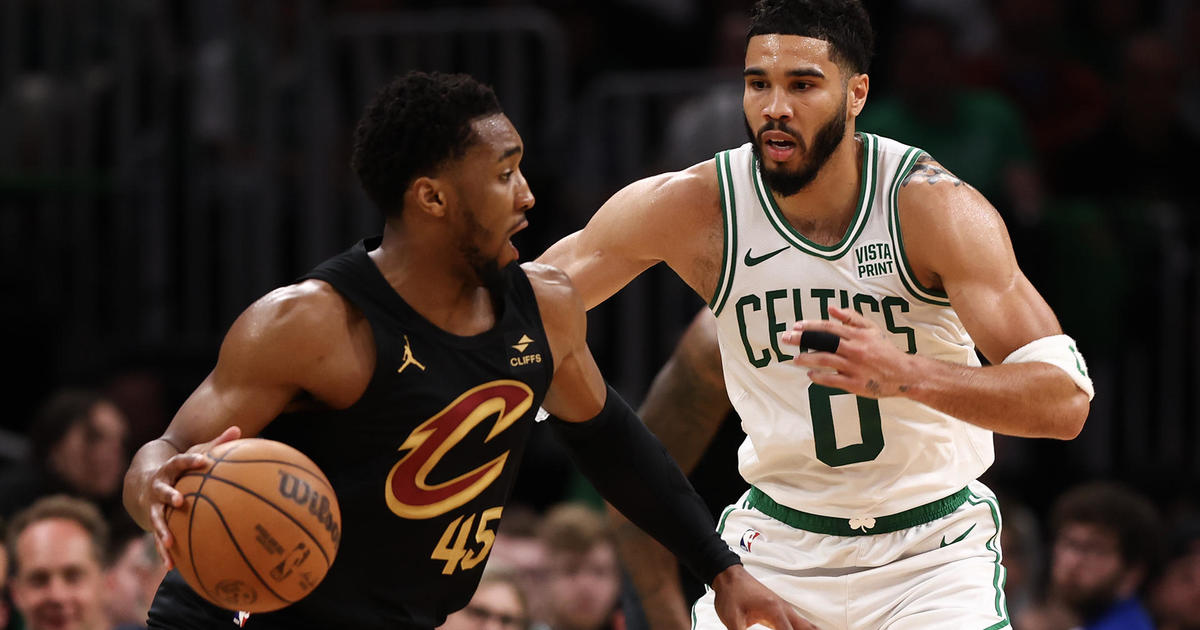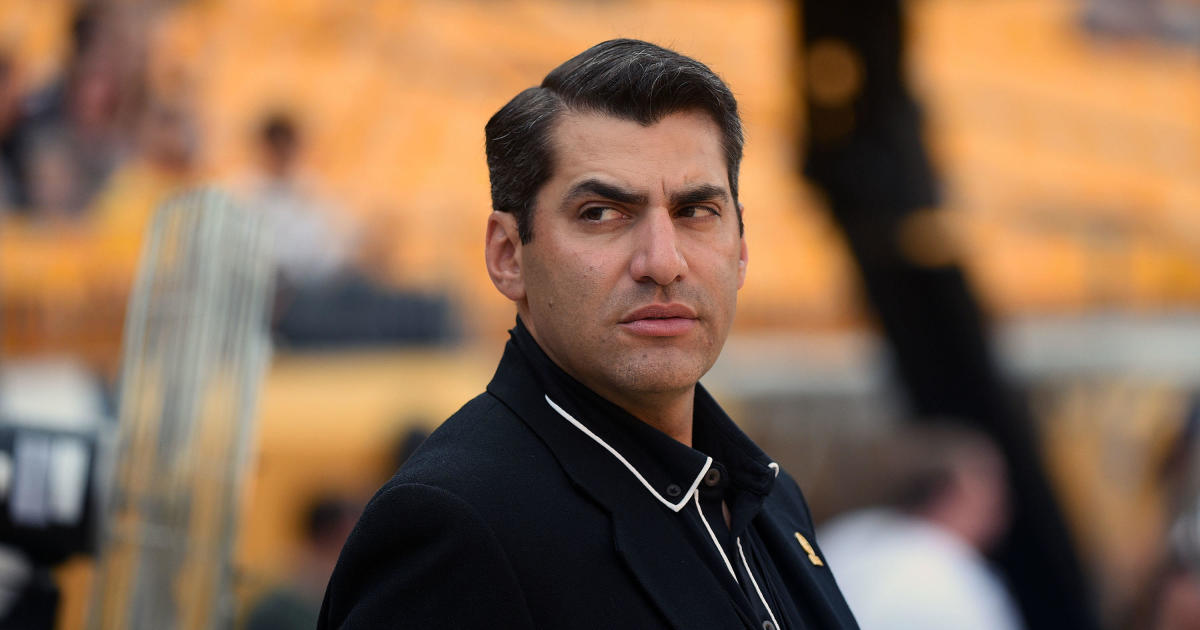Patriots Hold Roundtable Discussion On Racism In America, Best Ways To Inspire Change
BOSTON (CBS) -- In a special hour-long episode of Patriots All Access on Friday night, 21 players, coaches and scouts in the New England organization joined WBZ-TV's Steve Burton for a roundtable discussions about racism in America, their own encounters with racism, and the country's need for reform.
The discussion of racial inequality and push for change in this country has been at the forefront since the murder of George Floyd on May 25, but that is just one example. The deaths of Breonna Taylor, Ahmaud Arbery, Tony McDade over the past months have prompted protests around the country. Several Patriots have stood up and spoken out about the inequality that Black people face in their every day lives, and on Friday night, they shared personal experiences from their different walks of life and discussed the best way to create change.
Participating in the roundtable was David Andrews, Ja'Whaun Bentley, Justin Bethel, Brandon Bolden, Steve Cargile, Nick Caserio, Brandon Copeland, DeMarcus Covington, Julian Edelman, Brian Hoyer, Jakob Johnson, Jonathan Jones, Jerod Mayo, Devin McCourty, Jason McCourty, Ronnie McGill, Derek Rivers, Matthew Slater, Ben Watson, James White, and Deatrich Wise Jr. You can watch the entire special on Patriots.com.
All who took part in the chat agree that education and discussion are important for change in the country. Devin McCourty, one of New England's most vocal leaders on and off the field, said the fact that discussions like this are happening in their locker room and in homes across the country is reason to be hopeful that change is coming.
"So much has gone on and the positive is so many people want to get involved and trying to figure out how to get involved," he said. "Conversely to that, just seeing what took place for this all to happen is very disheartening and sad -- watching George Floyd's murder and that 8:46 video to see that go down. But to see the nation's reaction to it -- obviously everyone is going to have their opinion on the rioting and looting -- but to see people care because of what was going on and what has been going on in our country for so many years, to get out and peacefully protest or express yourself whichever way you see fit. When you want change and you want things to move in a different direction, you have to make noise."
"I do see a future and I do have hope that things will change in this country," said McCourty.
"It's unfortunate it got to this point," added former player and current linebackers coach Jerod Mayo, "but at the end of the day, you look at this conversation that we are having at this point: White-Black. I was talking to my mom the other day and she said, 'Real change won't happen until White families are having hard conversations around the dinner table.' I agree with that sentiment; these conversations are good and what we're looking for is progress. This is a generational problem. The divisiveness has been going on for hundreds of years.
"I just want my children to be in a better place and we're not having these same conversations 50 years from now," said Mayo.
Growing Up With Racism
Several players shared their experiences with racism while growing up. Jonathan Jones grew up in Georgia, and recalls spending his Saturday mornings picking up KKK flyers left in his family's driveway.
"I grew up in a small town in Georgia, split 50/50 but I lived in an all-White neighborhood. Saturday mornings for me was I'd find KKK flyers in our driveway, pick those up and throw them away," he said. "That was normal. They came in little bags with flyers in them. That was normal."
Patriots center David Andrews, who is also from Georgia, said he was blind to many of the things his Black teammates had to deal with.
"I think growing up in the south, you're kind of ignorant to it. Conversations I've had with some of my college teammates, and things that might have happened in college, whether we were hanging out, maybe I wouldn't think twice about it. Becoming a man and learning more about the world, getting out of my comfort zone, you look back and see different things that you might have been ignorant to," he said. "Those are tough conversations but those are good things that have come from it."
He recalls going out with several Black teammates but being turned away for various reasons. One bar turned them away because some in the party were wearing earrings.
"It was little things like that, and I didn't think anything of it. We would just go to a different bar. You look back, and it's such a little thing, but something that sticks out that you don't realize how it made people feel," he said. "Growing up in sports and in locker rooms, you're just around different people from different backgrounds so much that you have a misconstrude perception of the world. The way you see the world from the locker room, that perspective and growing up in sports, it's not really how the world works on the outside. That's something I've really noticed the last few years having conversations with guys from our locker room
"It's heartbreaking to see all the hate in the world," said Andrews.
Racism isn't just limited to the south. Patriots scout Ronnie McGill, who has spent the last decade with the team, recalls an instance of discrimination in his first years with the team when he brought players to a Boston hospital for their physicals. While seated in the waiting room, a White woman sat next to the group and put her purse down. When he left to walk up to the desk, she turned to McGill and asked if he was going to steal her purse. The exchange left McGill speechless and in shock.
"I really found out that racism goes across the Mason-Dixon line," he said. "There's no place where it won't go."
Interactions With Police
Many players shared stories of their interactions with police, and being trained by their parents how to react if they were pulled over. Many recall being told to never travel with a large group of Black friends, since it made them an easy target to get pulled over. Linebacker Brandon Copeland said that he was pulled over seven times as a teenager, and each time came within minutes of leaving his house. Deatrich Wise, who stands at 6-foot-5 and 270 pounds, was taught to slow down all of his actions after being pulled over, so not to appear as a threat to officers.
"Being pulled over by cops, immediately when they come to the window, whether he's a smaller guy or a female cop, they always get frightened by my height and muscular build. They always go back and call for backup, and three more cars come. They always surround the car before they approach again," he said. "I was always told to act slow, move slow, talk slow. A few times they would ask me why I'm talking and moving so slow and I let them know -- I move slow so you know I'm reaching for certain things. It's crazy my parents had to teach me had to act.
"A few times I was put in headlocks by shorter cops who felt I was a threat, and they had to project their masculinity," he said. "There have been several cases where I always remain calm and try not to escalate the situation."
The "Articulate Black Man"
Matthew Slater and Benjamin Watson detailed what it's like growing up as "articulate" Black men. That connotation is racist itself, but is something the two have had to deal with throughout their careers. They both agree that there usually isn't racist intent when someone approaches them after they give a talk, but that's part of the underlying problem.
"Sometimes there's an innocence behind it, sometimes there is malice, and sometimes its ignorance," said Watson. "Ignorance isn't necessarily an insult; sometimes people just don't know or understand. When you look at the idea of the articulate Black man, the assumption is that slaved Africans are lazy, not smart or intelligent and worrisome. Name the bad adjective, that is what has been intentionally put on Black culture. If you look throughout advertising, cartoons, movies, that is the underlying idea of who Black people are. When someone says you're articulate, they could be as honest as they want to be and really complimenting you, saying they really like what you said and that's great. But in the larger context of american history, that word articulate has been used to say you're an anomaly. An anomaly from the others. You're not like them and you're different, and there's almost the connotation that you're accepted because you have transcended your race. -- 'I'm not looking at you like I look at the rest of y'all.'
"Sometimes people mean that when they say that, but I think a lot of times people just don't understand that," continued Watson. "I get offended by it sometimes, but it's also unfair to the individual person assuming they are not Black and they're saying, to assume their intent. ...
"I think that goes back to having a relationship like what many of us have with other guys who aren't like us, where we can tell them why this was kind of offensive to me, and maybe you didn't mean it that way," he said. "I can tell you what I'm hearing and what other people like me might hear when you say that, even if that's not your intention."
"As is the case in a lot of these situations, I try to stay positive and give people the benefit of the doubt, because I want them to do the same to me," said Slater. "I have taught myself over the years that I cant be easily offended, because if that's the case ill walk around being offended most of my days. I try to take things in stride the best that I can."
How White Teammates Are Standing Up For The Cause
The White players on the New England roster have engaged in these tough conversations over the years, and are eager to stand up and help their teammates.
"We had a group discussion a few weeks ago and someone said, 'Imagine if George Floyd was one of your White friends and how would that make you feel.' That really stuck with me," said quarterback Brian Hoyer. "I met a lot of men of color, and to think they have to live like this day in and day out, how can this be? It's 2020, how can this be that we live in a society that allows this to happen?"
Hoyer said his father, an immigrant from Germany, taught him to treat people how he wants to be treated, based on their character and not skin color or where they come from.
"I had the privileged of being raised that way and I pass that down to my children now," said Hoyer. "It starts at home and that has become evident. this is passed down from generation to generation. If I can pass down the right way to treat people to my children, that's the first step I can take. I know there is a lot more I can do, but that's how we've approached this after these events of the last month. We have those discussion with our kids, and White men of privileged have to know it's going to be awkward, but you have to have those conversations. ... I look to guys like the men on this screen and the great leaders we have at what I can do better as a White man."
Simply listening to the recollections from Black teammates and players is a good first step.
"What we can do -- what I can do -- is listen," said director of player personnel Nick Caserio, who expressed embarrassment at the state of the country. "Dev and I have talked about this, to affect change a lot of it starts at the grass roots level. It starts with how you treat people and how you are a human being -- to listen, educate yourself and have empathy. All of us have a responsibility to support each other and be there for one another. In the end that's more important than anything else. It starts in our homes and how we teach our children and treat people around us.
"This is more than football. It's about relationships, people," said Caserio. "That's how we are going to make progress."
But being silent on the matter will no longer be acceptable in the eyes of Julian Edelman.
"I've been playing football since I was eight years old and I've grown up with a lot of black dudes. A lot of black dudes are brothers of mine, and a lot of people of color were heroes of mine. For me to change and not be silent on this issue, understand and listen, let them know I'm here and to have those uncomfortable conversations," he said. "I have them all the time with Slater, Dev, Ben Watson. You have to educate yourself and listen to stories that every one of these guys is going through. That's what I try to do and just be a shoulder, let them know I have their back and am with them."
Friday's edition of Patriots All Access will air again Sunday morning on TV38 at 9am and Sunday evening at 12:05 am on WBZ.



